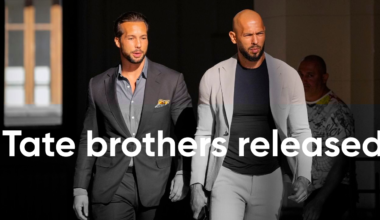In a recent development that has sparked intense debate on social media and within the country, the Egyptian government has taken a significant step by banning female students from wearing the niqab, a face-covering veil, at schools. This decision, announced by Education Minister Reda Hegazy, has raised questions about personal freedom, identity, and the role of religious attire in educational institutions.
The Controversial Ban
The ban, as outlined by Education Minister Reda Hegazy, grants students the “optional” right to choose whether or not to cover their hair at school. However, it explicitly states that any form of hair covering must not obscure the face, and the chosen hair covering must adhere to a specific color prescribed by the ministry and local education directorate. The ban is set to be enforced starting from the academic year on September 30, 2023, and will remain in effect until June 8, 2024.
The Minister’s Perspective
Minister Hegazy emphasized that students still have the right to wear a headscarf, but it should not cover their faces. He also highlighted the importance of the child’s guardian being aware of this choice and ensuring it is made without any external pressure. Additionally, he stressed that teachers of Arabic language, religious education, social studies, and psychology should play a role in preparing students psychologically for the implementation of the ministry’s decision, taking into account their psychological state and age level.
Ongoing Debate
This ban on the niqab in schools is not a new topic of discussion in Egypt. It has been a subject of debate for several years, with some public and private institutions already imposing similar bans. Cairo University, for instance, prohibited teaching staff from wearing face veils in 2015, a rule that was upheld by an Egyptian court in 2020.
Differing Opinions
Opinions on this issue vary widely within Egyptian society. Some, like M.A., a 33-year-old marketing manager from Alexandria, argue against the niqab being worn at schools because it obstructs the transparency of the educational process. According to him, anything that obscures teachers from properly reading students’ body language and facial expressions should not be allowed at schools.
Similarly, a 38-year-old architect from Alexandria believes that schools should be able to identify individuals entering and leaving the premises, which becomes challenging when students wear the niqab.
On the other hand, F.A., a 45-year-old writer from , views the government’s decision as another instance of women being unfairly targeted. She contends that women are often used as “punching bags” in social, political, and economic contexts. She believes that this decision is part of a broader pattern of controlling women’s bodies and choices.
A Matter of Identity
For some, like an interviewee who spoke to Al Jazeera, the decision to ban the niqab goes against the essence of Egypt as a Muslim country. They argue that such a decision risks erasing the country’s identity and is contrary to the principles of human rights.
Conclusion
Egypt’s ban on the niqab for students has ignited a fiery debate within the country. It raises fundamental questions about personal freedom, the right to education, and the role of religious attire in educational institutions. The decision’s long-term implications remain to be seen, but one thing is certain: it has brought to the forefront a complex issue that touches on identity, education, and individual rights.






